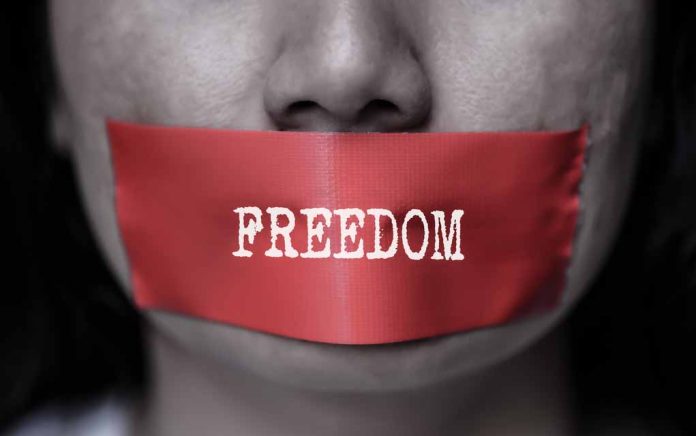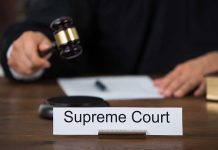
Hillary Clinton calls for stricter social media regulations and the repeal of Section 230, sparking debate on free speech and government control.
At a Glance
- Clinton advocates for national action to regulate social media platforms.
- She supports repealing Section 230 to hold platforms accountable for content.
- Clinton suggests banning cellphones in schools to protect children.
- Her stance draws criticism from those concerned about free speech implications.
Clinton’s Call for Stricter Regulations
Former Secretary of State Hillary Clinton has recently made headlines with her strong stance on social media regulation. In a series of public statements, Clinton has emphasized the need for more stringent federal oversight of online platforms, particularly to protect children from potential harm. Her comments come amid growing concerns about the impact of social media on mental health, the spread of misinformation, and online safety.
Clinton’s remarks have reignited the debate over the balance between free speech and content moderation on social media platforms. While some view her proposals as necessary steps to ensure a safer online environment, others worry about potential overreach and censorship.
Repeal of Section 230
At the core of Clinton’s regulatory push is her call to repeal Section 230 of the Communications Decency Act. This provision currently provides immunity to internet platforms for content posted by their users. Clinton argues that this immunity should be removed to encourage more responsible content moderation.
“We should be, in my view, repealing something called section 230, which gave platforms on the internet immunity because they were thought to be just pass-throughs, that they shouldn’t be judged for the content that is posted,” Clinton explained.
Supporters of this view believe that repealing Section 230 would force social media companies to take more proactive measures in moderating harmful content. However, critics argue that such a move could lead to overzealous censorship and stifle free expression online.
Protecting Children and Educational Focus
Clinton’s concern extends beyond general content moderation to specifically addressing the impact of social media on children. She has suggested banning cellphones in schools, citing examples of institutions that have already implemented such policies. This proposal aims to enhance educational focus and improve interpersonal engagement among students.
The former presidential candidate also highlighted the dangers of unmoderated content, including child exploitation and threats of violence. Her new book, “Something Lost and Something Gained,” reportedly delves into the negative effects of social media on children’s mental health, further underscoring her commitment to this issue.
Criticism and Free Speech Concerns
Clinton’s stance has not been without its critics. Former congresswoman Tulsi Gabbard, among others, has accused Clinton of opposing free speech and seeking “total control” over online discourse. These critics argue that increased government regulation of social media could infringe on First Amendment rights and lead to a slippery slope of censorship.
👇Hillary Clinton calls for social media censorship via lifting their federal umbrella protection from lawsuit liability. Free speech & constitutional experts say the solution to bad speech is more free speech, not censorship. #HillaryClinton #Censorship #socialmedia @FoxNews… https://t.co/O4zzWsr718
— Elizabeth MacDonald (@LizMacDonaldFOX) October 5, 2024
The debate surrounding Clinton’s proposals reflects the broader societal struggle to balance the benefits of open online communication with the need to protect vulnerable users and maintain civil discourse. As technology continues to evolve, finding this balance remains a critical challenge for policymakers and tech companies alike.
As the discussion moves forward, it’s clear that the issue of social media regulation will remain at the forefront of political and social debates. With high-profile figures like Clinton weighing in, the conversation is likely to intensify, potentially leading to significant changes in how we approach online content moderation and platform accountability in the years to come.
Sources:
- Hillary Clinton pushes for stronger social media regulation
- Hillary Clinton warns that allowing free speech on social media means ‘we lose control’
- Hillary Clinton says social media companies must moderate content or ‘we lose total control,’ ripped by Tulsi Gabbard
- Hillary Clinton warns ‘we lose total control’ if social media platforms are not regulated
- 2016 Presidential Loser Hillary Clinton Advocates for Stricter Regulation of Social Media Platforms
- Social Media, Section 230, and Free Expression
- The politics of Section 230 reform: Learning from FOSTA’s mistakes
- Hillary Clinton Joins The Chorus Of Ignorant Pundits Insisting Section 230 Must Go















